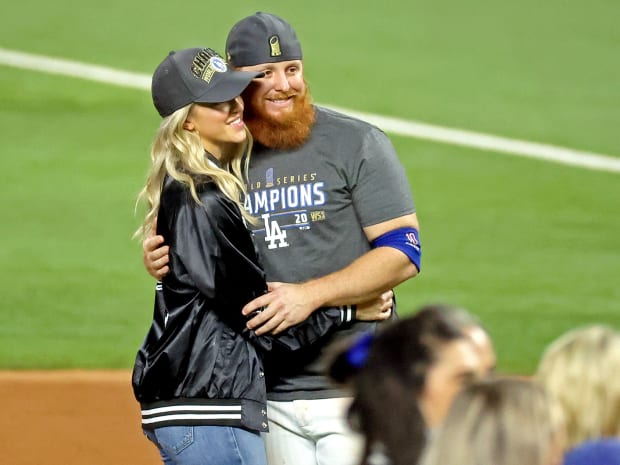Boston re-hired Alex Cora, Justin Turner apologized and the Mets' purged their front office. Notes from a busy Friday
Items from a very busy Friday news dump around MLB:
Red Sox Hire Alex Cora
Of course they did. I’m not sure why people are surprised that the Red Sox brought back the manager who led them to the 2018 World Series title, who has his coaching staff nearly intact and was fully cleared by MLB to return to baseball after serving a nine-month suspension for his role in the 2017 Astros’ sign-stealing scandal. Maybe the surprise came from the way GM Chaim Bloom cast such a wide net for other choices—none of whom had managed a day in the big leagues.
Allow Bloom the usual deliberateness and thoroughness of his ways. But when your choice to manage the Red Sox is Alex Cora or someone you believe might be the next Alex Cora, you hire Alex Cora. Sam Fuld and James Rowson could make fine managers one day. This was not the time, city or team to take such a flier when a known commodity was the other option.
“I like Cora,” said one rival executive. “But the problem right now is the Red Sox are not very good. I don’t think he can make a difference with that. You’re telling me you would have asked a guy who never managed before to walk in there in that city and take on that? Chaim couldn’t do that.”
Never forget that Cora, unlike A.J. Hinch, was an active participant in the Astros’ scandal, not just a bystander. That doesn’t go away. The Red Sox are not excusing or condoning it. It does not preclude him from returning to his line of work after satisfying the conditions of his penalty. Boston hired the best available manager for the team.

Justin Turner Apologizes
Turner dulled the glow of the Dodgers’ World Series win by disobeying MLB protocol and common sense by celebrating on the field, sometimes without a mask, when he knew he was COVID positive. Whatever assumptions he might have had about taking a picture with his wife with “few people left on the field,” as he wrote, should have ended when he left his isolation room and stepped into the dugout. I saw Turner there and it was obvious from where he was standing that he could see that the infield was full of people—as many as 100 to 200. And still he persisted.
Turner made a series of poor decisions: when he left the isolation room, when he left the dugout, when he took off his mask, when he lingered for at least 15 minutes, often hugging people, etc.
Wrote Turner in a statement, “I sincerely apologize to everyone on the field for failing to appreciate the risks of returning to the field.”
Good for him. There is no getting the World Series glow back. A maskless, COVID-positive player freely mingling with a crowd of people unfortunately is a lasting image from an otherwise successful postseason. There is a penalty embedded in that for Turner. Commissioner Rob Manfred can’t change that, but he can do the best he can to diminish it—which is why on a Friday afternoon he issued no punishment to Turner and even wore some of the blame, saying MLB “could have handled the situation more effectively.”
Steve Cohen Gets to Work
Upon closing the sale of his purchase of the New York Mets, the new owner immediately cleaned house, showing five executives the door, including GM Brodie Van Wagenen. It may sound cold, but it’s the right move for new ownership, especially when it comes to ridding the place of people with close ties to the Wilpons, the former owners.
Cohen’s top executive, Sandy Alderson, formerly worked for the Mets and knows where those ties need to be cut. According to a source familiar with Alderson’s thinking, Alderson wants to install a two-tiered executive hierarchy that reports to him: a president of baseball operations and a general manager. The source said Alderson has not yet reached out to preferred candidates.
“You know how Sandy is: everything by the book,” the source said. “I’m sure he’ll start on it now that the sale is closed. In today’s game, the job is too big for just one guy.
“I think they’re doing the right thing here. You come in with your own ideas of how you want to run things. It’s like a football coach who runs the wishbone. Say he takes over a team that’s been running the West Coast offense. If you keep the same people, you wind up spending so much time just bringing those guys up to speed on the wishbone that it keeps you from accomplishing what you’re trying to do.”